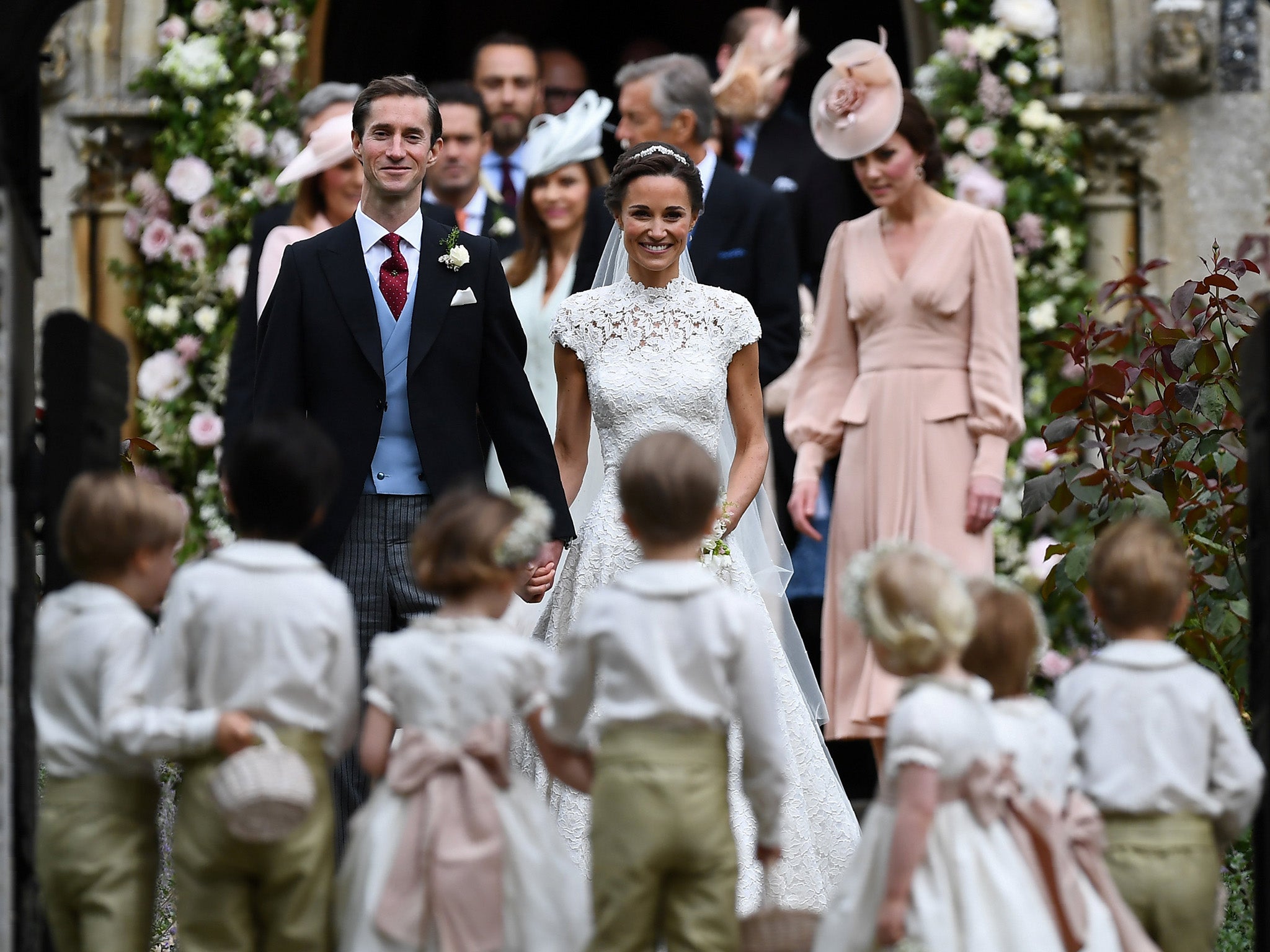Staying unmarried may be more expensive than tying the knot
Getting married can be an expensive business. But not nearly as expensive as not being married

Your support helps us to tell the story
From reproductive rights to climate change to Big Tech, The Independent is on the ground when the story is developing. Whether it's investigating the financials of Elon Musk's pro-Trump PAC or producing our latest documentary, 'The A Word', which shines a light on the American women fighting for reproductive rights, we know how important it is to parse out the facts from the messaging.
At such a critical moment in US history, we need reporters on the ground. Your donation allows us to keep sending journalists to speak to both sides of the story.
The Independent is trusted by Americans across the entire political spectrum. And unlike many other quality news outlets, we choose not to lock Americans out of our reporting and analysis with paywalls. We believe quality journalism should be available to everyone, paid for by those who can afford it.
Your support makes all the difference.The figures are staggering. To pay for the celebrations over a single day, Britons now typically spend £25,000.
With few couples having such amounts stashed away, more than 50,000 people have applied for a wedding loan so far this year, collectively asking for £460m to fund the big event. The average amount requested is around £8,500, according to MoneySuperMarket – just short of the amount needed for a deposit on the average home.
In fact, one in 10 people request loans worth £20,000 or more. And the number of applications for £30,000 or more has increased by more than 50 per cent in the last year.
But don’t imagine this is exclusively down to bridezillas hoping to emulate the celebrity celebrations of Pippa Middleton, Tom Daley and the rest. Men are more likely than women to ask for money to fund it all.
Even attending someone else’s wedding coming in at more than £430 per bash, or £1,720 for the standard four weddings a year, says American Express. That’s a total guests’ bill of £27.5bn every year.
It’s no wonder increasing numbers of people are preferring to cohabit instead. Around 10 per cent of the UK’s adults live with their partners without the formal certificate.
Older unmarried couples is the fastest-growing demographic, according to official figures which reveal that the number of cohabiting adults aged 65 and over, most of whom have been married before, has tripled since 2002.
I don’t
But as the numbers grow, especially among older romantics, experts are warning that choosing not to marry can be a far more expensive decision than tying the knot, because the tax and benefits system isn’t keeping up with social evolution.
Many of the rules do not recognise cohabitation, thereby treating cohabiting couples as second-class citizens, warns a study from Royal London, with inheritance tax, income tax, and state pension small print hitting unmarried couples the hardest.
Many are now calling on the Government to overhaul antiquated systems to inject a little more fairness into the matter of marriage or cohabiting when it comes to state support and taxation.
“For example, the family of a cohabiting couple could face an extra £70,000 inheritance tax bill compared with the heirs of a married couple,” warns Helen Morrissey, personal finance specialist for Royal London.
“Similarly, cohabiting couples are excluded from income tax breaks worth hundreds of pounds a year and from the rights to inherit a state pension when one partner dies.
“We want the Government to review whether the tax and benefit system needs to be updated to reflect the world in which we now live, not the world of the 1940s.”
I don’t inherit
The biggest losses are around inheritance tax (IHT), with married couples enjoying significant benefits over their cohabiting counterparts.
They can pass their wealth to the surviving spouse free of inheritance tax and they can transfer any unused portion of their inheritance tax threshold to their spouse.
Neither of these options is available to cohabiting couples.
Married couples can also transfer any unused portion of the new residential nil rate band, designed to help families pass their home to direct descendants in a tax-efficient manner, to one another on death.
When the residential nil rate band is fully in force in 2020 it will be worth up to £350,000 to the surviving spouse in a married couple. The surviving cohabiting partner only has their £175,000 residential nil rate band. Based on an IHT rate of 40 per cent, being excluded from this scheme puts cohabiting couples at a £70,000 disadvantage.
I don’t allow
Other rules are gradually catching up, but a significant lag means thousands of couples are falling through the gaps.
Take income tax. There are two special tax allowances for married couples only: the old Married Couples Allowance applies only to the oldest married couples, and is worth up to £844 per year; and a new Marriage Allowance introduced in April 2015, worth £230 per year in 2017/18.
A cohabiting couple who missed out on the Marriage Allowance in each of the three years since it was introduced would lose a total of £662; if an estimated 75,000 taxpaying cohabiting couples have missed out to this level, the total loss would be around £50m.
I don’t retire
Most of today’s pensioners reached pension age before 6 April 2016 under the old state pension system. Under the old system, there were extensive rights to derive an improved state pension following the death of a spouse, but these rights do not apply to cohabiting couples.
An older married woman could easily see her state pension boosted by around £2,500 per year following the death of her husband, but a cohabiting partner would miss out.
Join our commenting forum
Join thought-provoking conversations, follow other Independent readers and see their replies
Comments